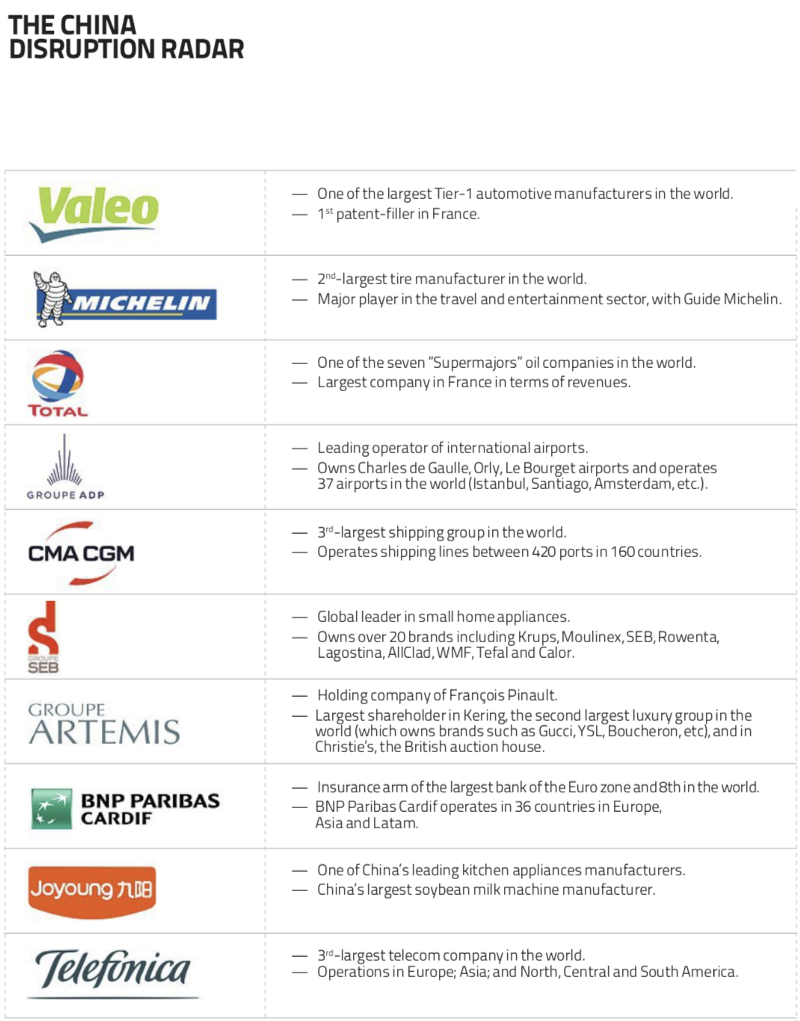— Cathay Innovation seeks to build connections between China, Europe and the U.S.; and between corporates and startups.
For big global companies, it’s no easy task keeping an eye on startups being developed in the world’s top innovation hubs — especially China, which has made no secret of its desire to become a global leader in tech. Enter Cathay Innovation, a global venture capital fund that invests in small and middle-market companies in China, Europe and the United States. It’s affiliated with Cathay Capital Private Equity, a cross-border firm founded by the Chinese serial entrepreneur Mingpoi Cai that has €2.5 billion under management and focuses on the same three geographies.Cai joined forces with Denis Barrier, a technology-focused French venture capitalist, to set up the fund in 2015. Their idea: to enlist large corporations to support digital entrepreneurs — and at the same time to create a global platform to connect these entrepreneurs. Cathay Innovation raised €287 million for his first investment fund, which closed in the middle of last year. About 80% of the fund has been deployed in 20 investments, a third in each geography. (One of those investments, Pinduoduo, a Chinese company that’s developed an e-commerce app allowing people to order products at discounted prices by grouping together on the social messaging service WeChat, raised $1.6 billion in its July initial public offering on NASDAQ, giving it a market cap of just under $30 billion.)
Cathay’s VC activities also include two funds in RMB (about €200 million each) dedicated to China with a specific sector approach and dedicated European corporate strategic investors, also known as limited partners: a smart energy fund with the oil giant Total and an auto tech fund with the tier one automotive manufacturer Valeo.
In addition to Total and Valeo, strategic investors in the group’s first fund include some of France’s other large companies, including the tire maker Michelin; the insurer BNP Paribas Cardif; the international airport operator Groupe ADP; the container transport and shipping company CMA CGM; and Groupe SEB, a manufacturer of small home appliances.

A Passport to China
Why would a French producer of toasters and coffeemakers be interested? Groupe SEB has a strong presence in China through Supor, a leading local cookware and small appliances company it acquired 10 years ago, but acknowledges that it is difficult to stay on top of the Chinese market on its own. “We see this as complementary to our traditional innovation process,” says François- Xavier Meyer, vice-president at SEB Alliance, the company’s venture arm. “Our open innovation partnership with Cathay Innovation is like a passport to China, it allows us to benefit from their strong local deal flow and to possibly co-invest.” The fund “is a unique platform for introductions to the best innovative companies and gives us the capacity to do real business development with them.” Besides strengthening SEB’s capacity to innovate, the arrangement can “better position us globally, not just in the areas we know but in new areas,” Meyer adds.
Other companies appear to be reaping benefits. Cathay has connected Shopal, a Chinese e-commerce search engine in its portfolio, to a range of French brands, including the skincare product maker Caudalie. Shopal took over the exclusive online marketing rights to Caudalie in China in early 2017. The French brand has seen its market share grow under the company’s management, with Caudalie rising in Taobao’s beauty brands ranking from below 200 to enter the top 50 by the end of last year, according to Cathay.
The interest for corporates doesn’t just include distribution deals. It’s a chance to connect with startups in Cathay’s portfolio that have interesting technology or disruptive business models. Examples of the fund’s portfolio companies include Ledger, a Paris-based company, now making a big push into China, that develops hardware-based security products to protect users of cryptocurrencies and blockchain applications; and Peek. com, a U.S. startup aiming to digitize the booking of activities during travel.
Mobilizing the Ecosystem
“We exchange a lot with [corporate strategic investors] about their sectors, on the startups we consider investing in and on the portfolio companies we support,” says Jacky Abitbol, a Paris-based partner at the fund. “For example, when we have a specific investment opportunity for Cathay Innovation which requires advice from experts in energy, financial services, healthcare, or mobility, we will work with the appropriate colleagues on the Cathay platform but we will also mobilize our whole ecosystem in order to identify the best companies globally.” While there are VC funds in the U.S. that have a strong track record in connecting the U.S. and China or the U.S. and Europe, often those funds have separate P&Ls, separate investment vehicles and separate teams who invest according to a local approach, not with a cross-border strategy, says Barrier, Cathay’s co-founder and CEO. “Even though Cathay is spread across three geographies, we act as one single team,” he says. “We believe that we are building a strong global ecosystem for those who really want to tackle the world.”






